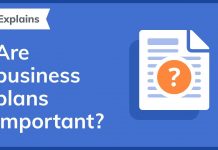One of the biggest problems businesses struggle with is being compensated for their services. Invoice factoring can help in the short-term and hurt in the long-term.
Invoice factoring is when you use a third-party service to collect your invoices. They pay you for the invoice amount minus a fee for their services. That means you don’t get 100% of the money your customers owe you.
While it may be helpful for small business owners to work with an invoice service, there are also drawbacks to it. Read on to see whether this is the best option for your business!
Pro: Immediate Cash Flow
Factoring your invoices allows you easy access to capital, so that your company can continue to run smoothly.
It is especially viable if you have short-term funding needs and can’t afford to wait weeks, months before your customers pay you.
Pro: They May Collect Invoices Faster Than You
Usually, the factoring firm would be most concerned with looking at the payment background of the customers.
It gives them a good sense of the chance they face in collecting the invoice. If your credit history is good, they are more likely to work with you and get your invoices paid fast.
Pro: Better and Improved Customer Relationship
As a company owner, some of your tasks can be stressful and challenging. Another of these activities is managing debt.
Through handing this over to a factoring service, you don’t have to feel like a poor guy. This will lead to good and productive customer relationships.
It will hopefully also allow you to develop longer-term customer ties!
Con: The Cost
There are charges associated with this financing. Generally, a factoring company charges between 1% and 5% of the total service fee invoice number.
You will determine whether the immediate cash payout is worth the loss. It would be better to wait for payments from consumers if the business is on a budget rather than getting an invoice factor at a rate.
Con: Liabilities
You may be liable for unpaid invoices, it is important to learn. These businesses may not invest extra time into seeking consumers that pay in late payments and will not meet the terms of their contract.
You could be responsible for paying for unpaid invoices, or for dealing with a different invoice of the same amount to cover costs if you have a resource invoice factoring agreement.
How Can Invoice Factoring Be Harmful to Your Business?
Invoice factoring requires the transition to another organization of full custody of the invoices. It is not something that some business owners want because they do not want another company to have access to financial information.
You should not have invoice factoring to be your first choice. In fact, this is not the most appropriate choice for long-term funding.
When your company is entitled to receive a guaranteed SBA loan package, you will have interest rates of up to 8.3%, long, and small monthly payments.
In general, factoring companies work with business-to-business enterprises (B2B) who invoice short-term (90 days or less) customers. They could refuse to consider contracts for a longer period of payment.
When is Invoice Factoring Good for Your Business?
While it may be a good consideration for other firms, the organization should also consider business loans, cash advances, and SBA loans and credit lines, to mention only a few examples.
Invoice factoring is a solid strategy for business owners who need money fast. You could benefit from an invoice factoring solution if that sounds like your business!
Conclusion
Invoice factoring can provide quick cash flow to help manage your business budget. It could be a reasonable option if you have bills to pay and cannot get access to capital.

















